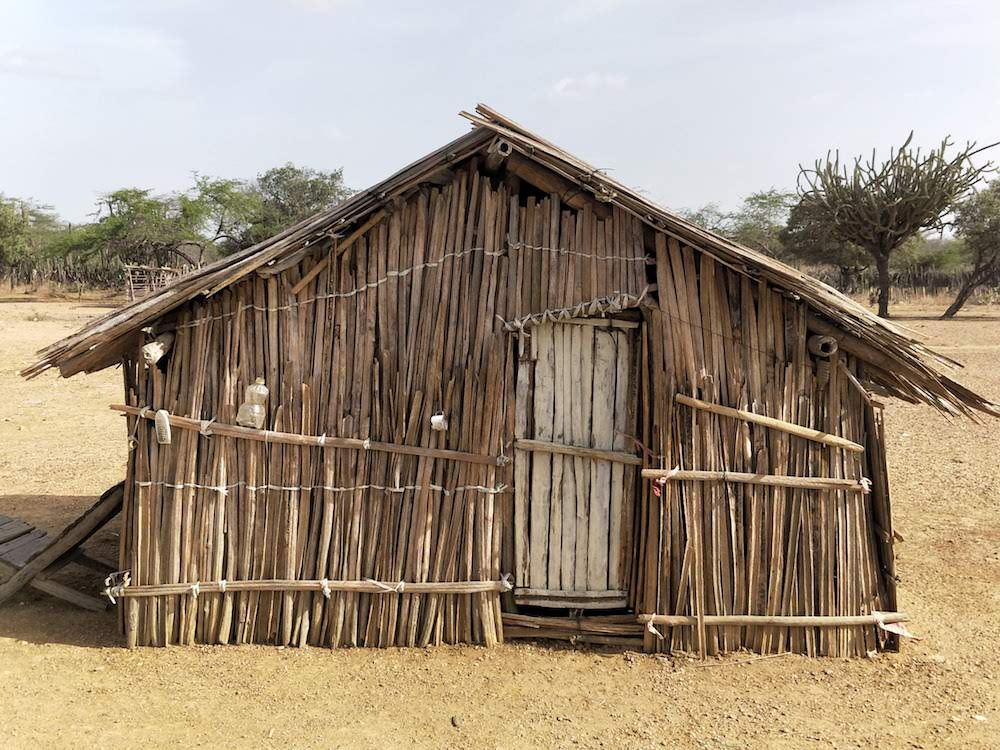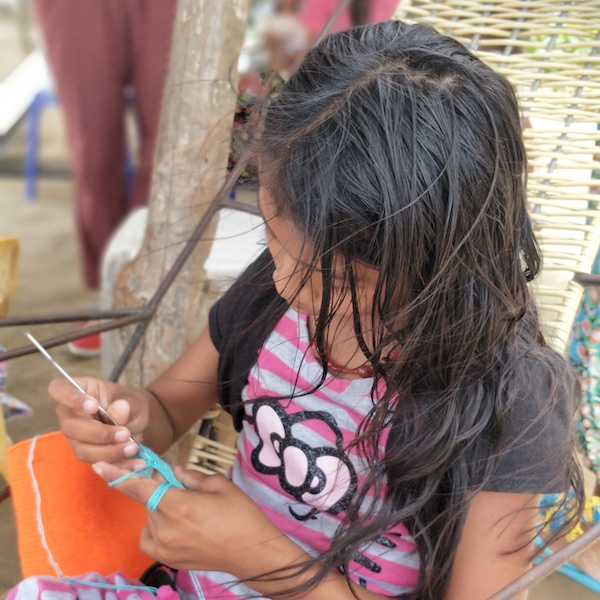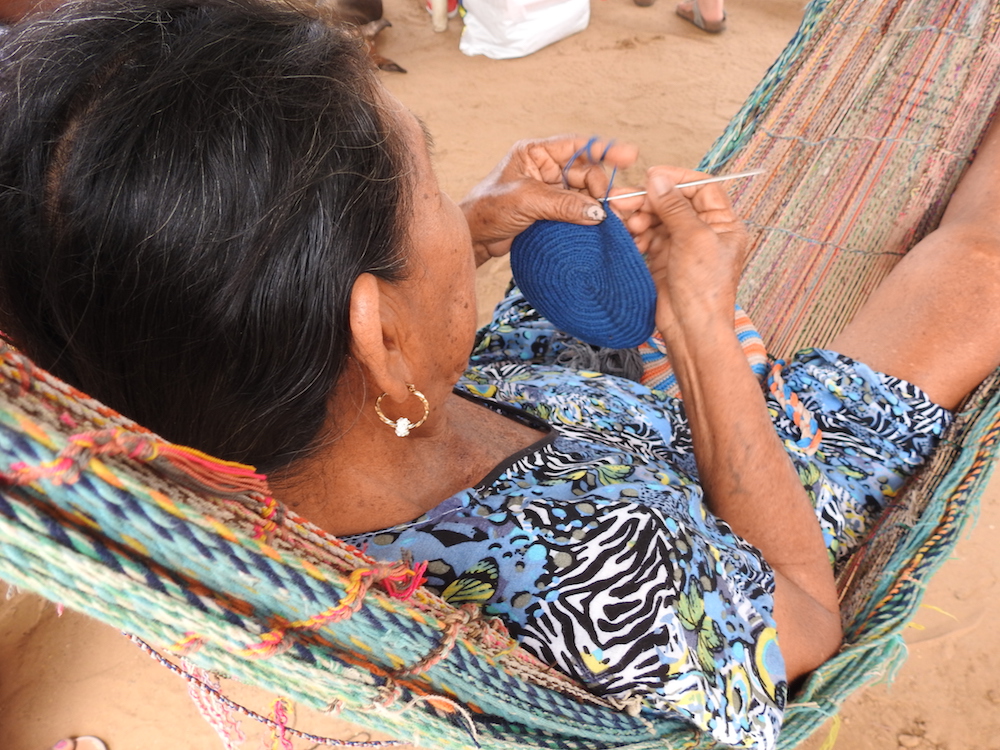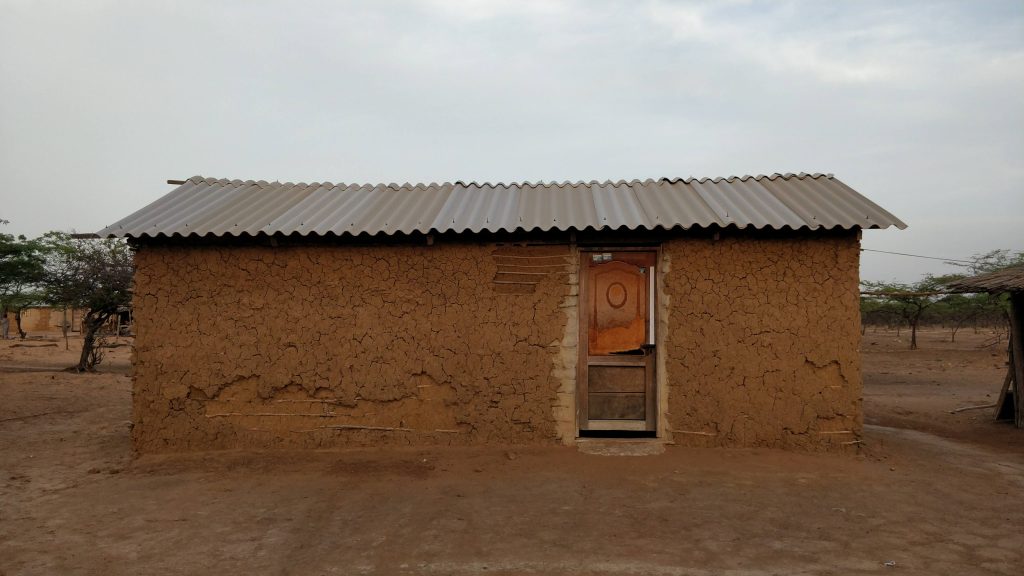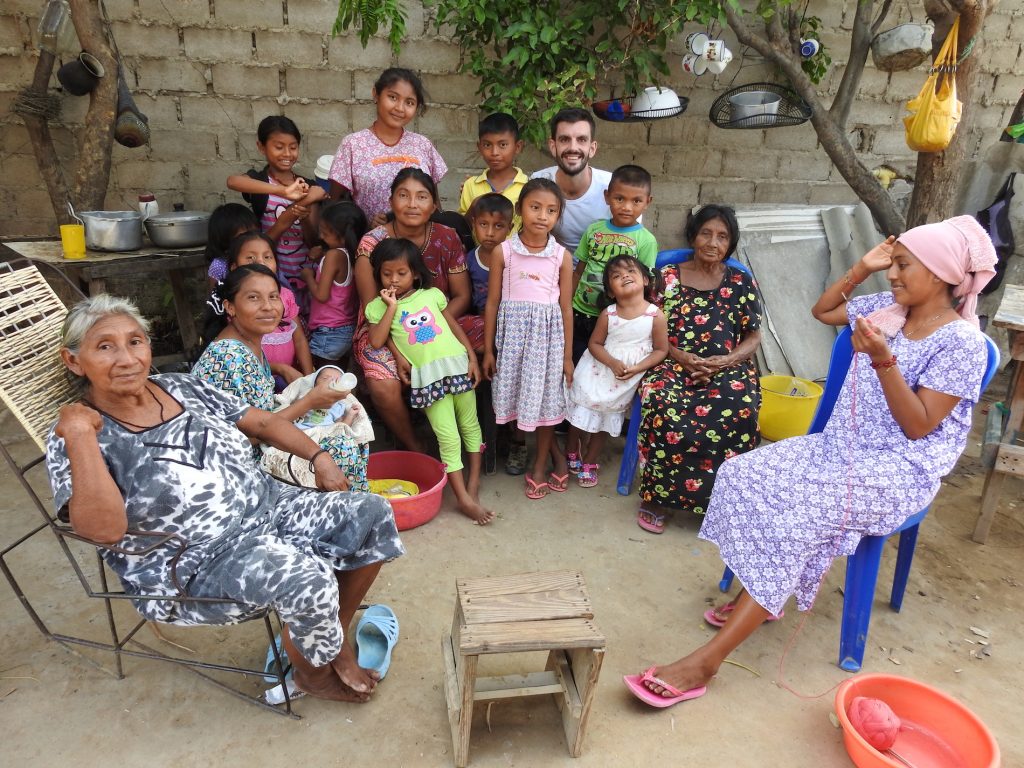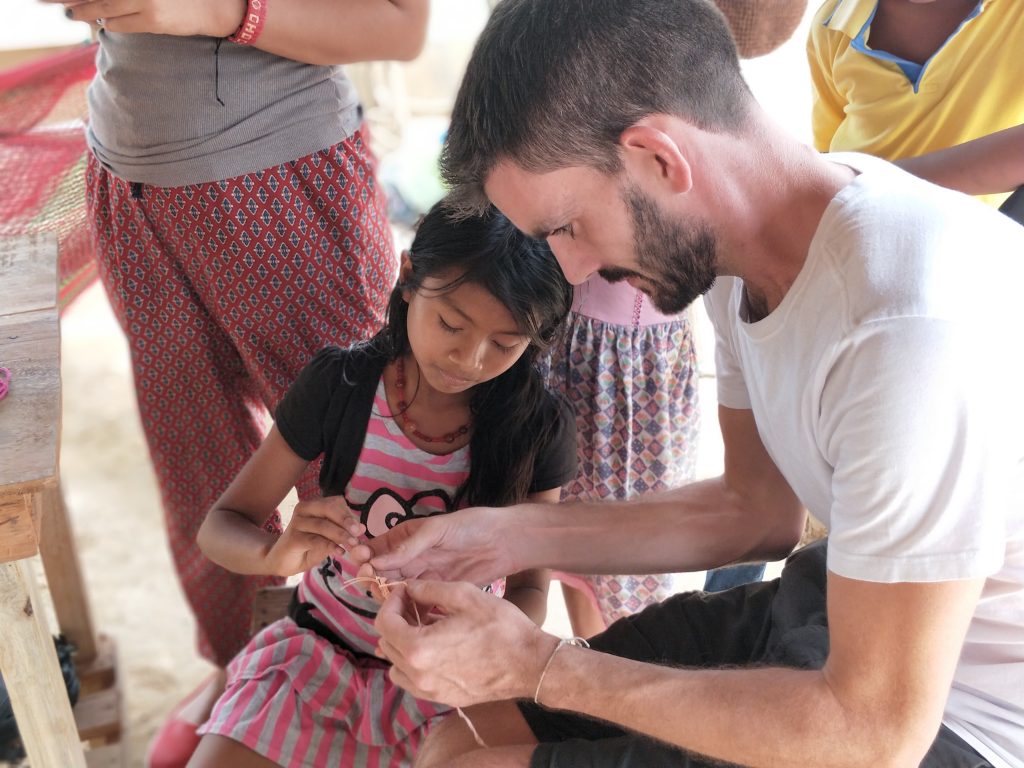Finding the Wayuu
When looking for artisans most of the wo...
The Wayuu are organised in Matrilineal clans and Wayuu children even take on their mother’s last names. Within Wayuu communities women are the cultural leaders and the centre of the family unit.
One of the most traditional activities of Wayuu life is weaving, again it has been passed down through generations and carries the heritage of all the Wayuu ancestors. It is used as an art form to express life and convey intelligence, creativity and wisdom. Wayuu daughters are taught how to weave and crochet by their mothers from a young age.
The joy of weaving is that it can fit around the other day to day activities of the Wayuu women enabling them to create products in order to generate an income while also concentrating on the preservation the Wayuu way of life.
According to legend the tradition of weaving among the Wayuu comes from ”Wale-Keru” a spider that taught women how to weave their creative drawings into mochilas bags. Every one of these designs is completely unique and tells a story through colours, patterns and shapes – while each bag is different, they all represent the Wayuu culture and way of life.
Within wayuu communities, respect between women is commanded through the quality and intricacy of the mochila designs. Only the most respected members of the communities are allowed to weave the most complex designs.
Sadly, this traditional way of life and Wayuu traditions are coming under threat. Wayuu communities are resisting mining companies and paramilitaries for the right to remain on their lands and in their rancherias. The communities are facing increased poverty and crisis of cultural identity. According to the Unicef, the Wayuu region is the second poorest place in Latin America after Haiti.
Hence why the creation of the mochilas and selling them are such an important part of retaining Wayuu identity and lifestyle. While in Northern Colombia Tmac met Paula, from Talento Colectivo who runs a not for profit engineered to create opportunities for Wayuu women. Talento Colectivo, launched in 2001 was set up following extensive research about the correct purchase prices so that women can earn enough to survive. There are issues throughout Colombia of Wayuu women being taken advantage of and underpaid for their work. Through our collaboration, TMAC and Talento Colectivo are ensuring that the money made from the purchase of these products goes directly to where it should – the highly skilled women behind these pieces.
Through the TMAC Boutique you can find out the individual behind the bags your purchasing including photos of your bag with it’s creator! We have also created a cultural exchange where buyers can send messages of thanks to the women – just get in touch through our contact from and we will ensure that your message gets to the woman who made your mochila!
